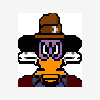kinda new here.. but i really need help and i have no idea what to do.
i have a new computer(4 month) and about 2 month ago it started occasionally(twice a week) making really loud static voice (it's like a buzzing sound)
when i listen to it, it comes from the processor/pciE area.
ever since, the sound just became more frequent. the noise only happen when the computer is working hard (Video Games\full HD movies)
if i restart the computer the sound will stop for a couple of hours.
now every time i start a game the noise begins,computer restarts not helping anymore, the sounds just gets back as soon i torn the game on
it's definetly not the fans.
i have 4 fans inside the computer.
i switched them off and the sound didn't stop.
i have an amd athelon quad, 2 gigs of ram and 2 video card.
ati 4550hd on board, ati 5450hd pciE slot.
and 550W power supply
iv'e looked all over and couldn't find a solution..
any suggestions?















 Sign In
Sign In Create Account
Create Account

